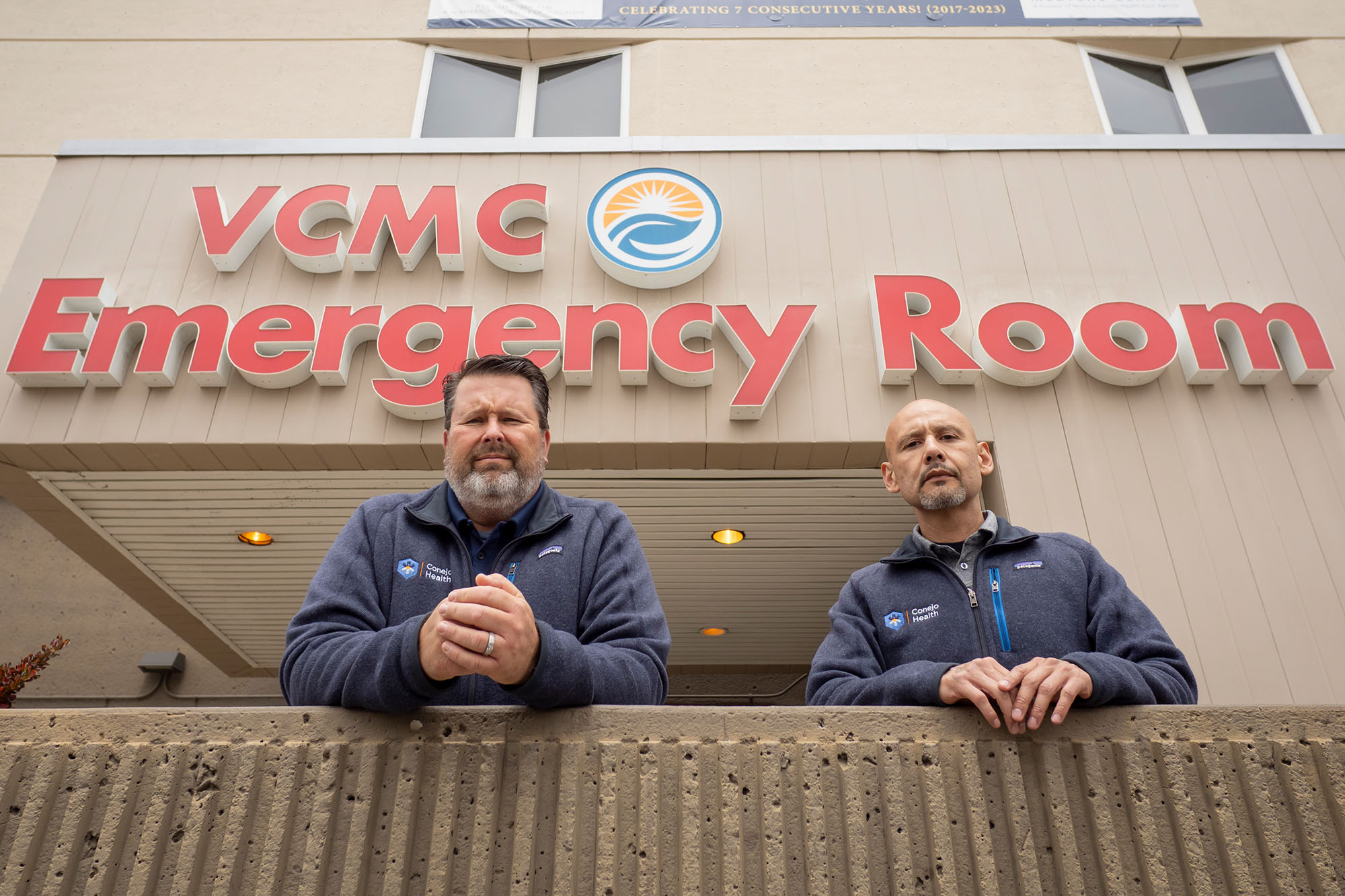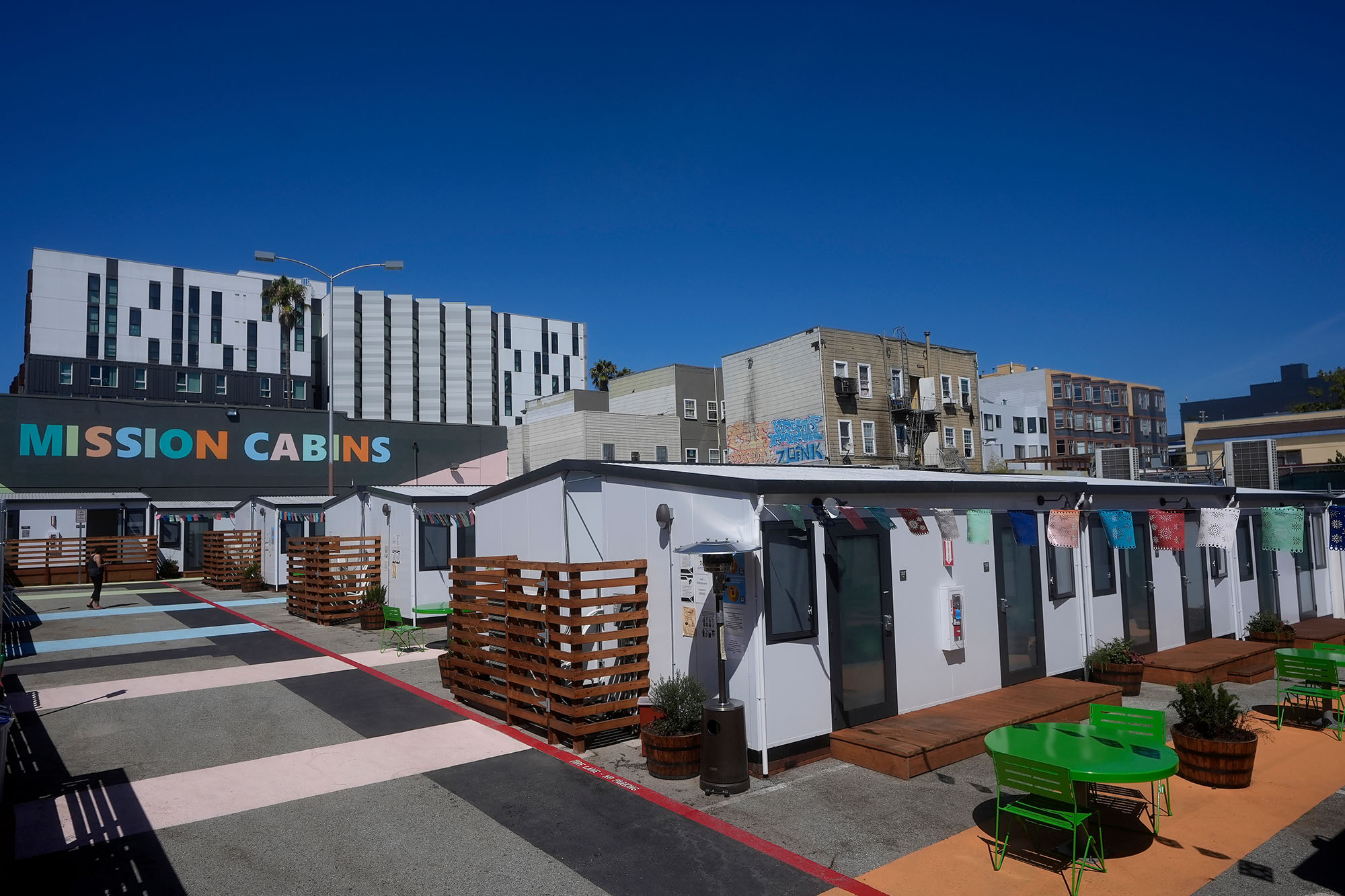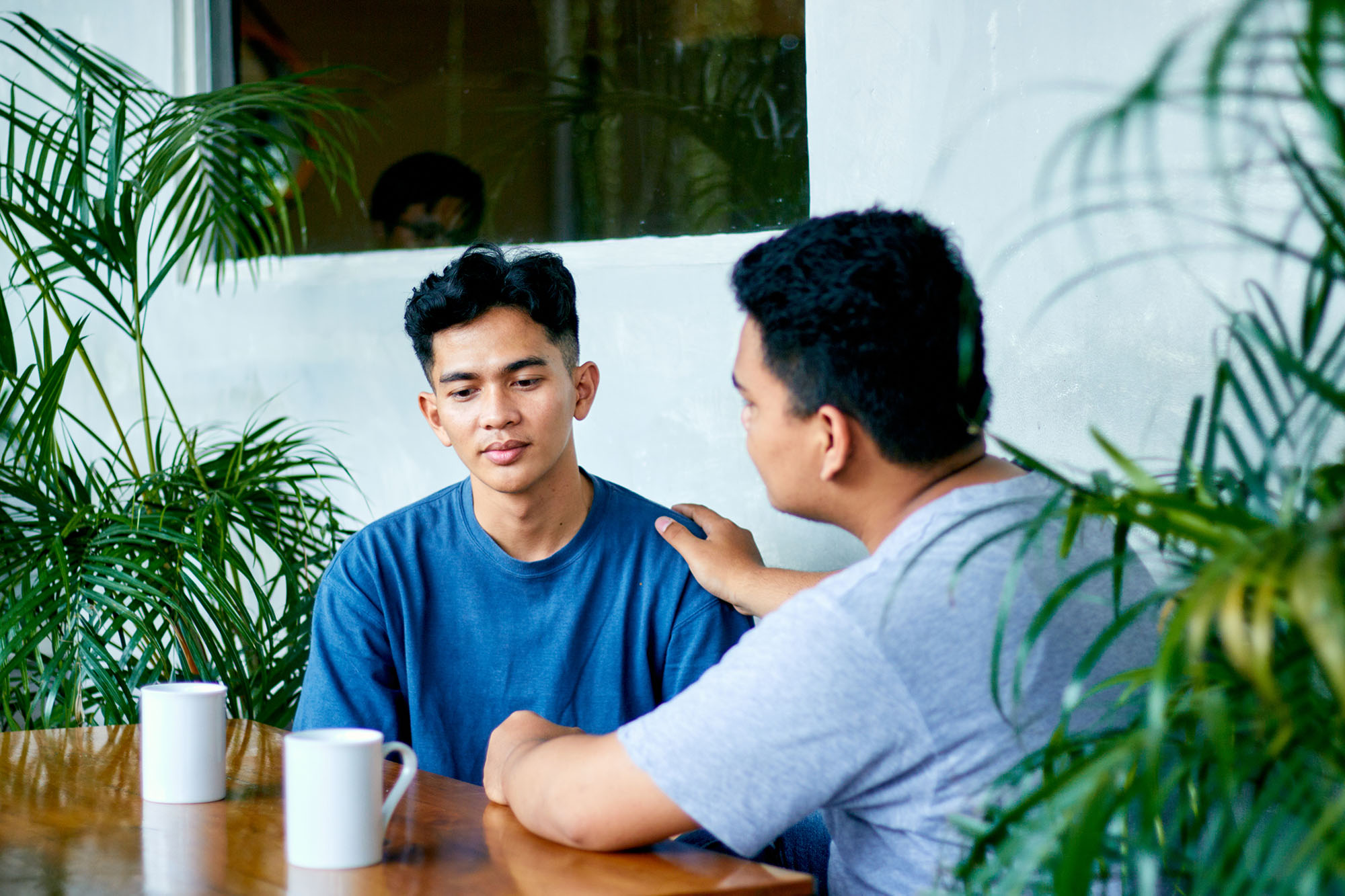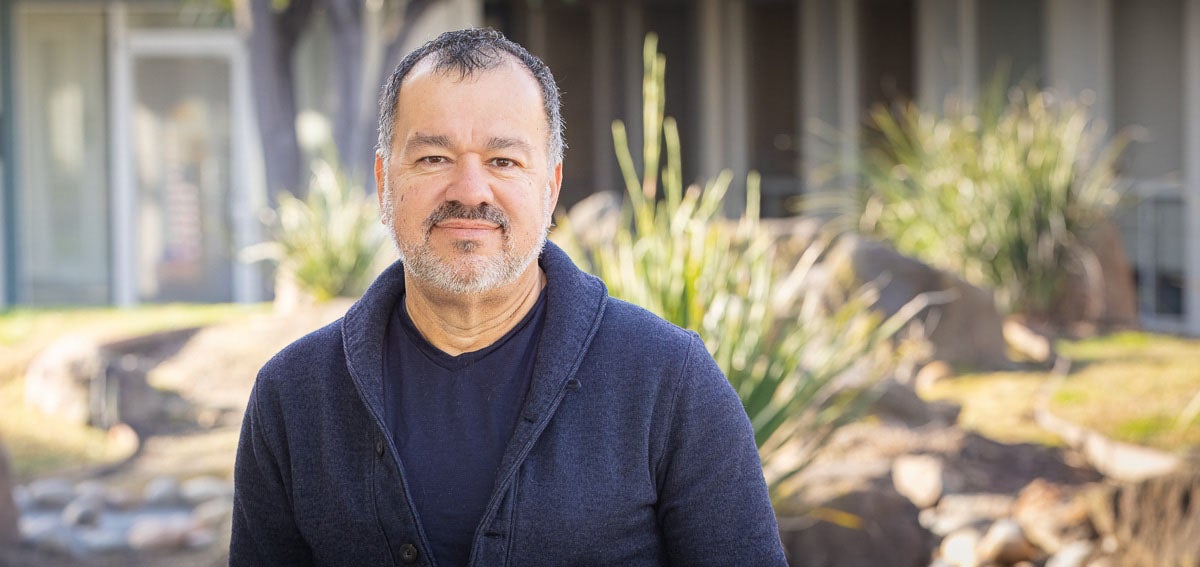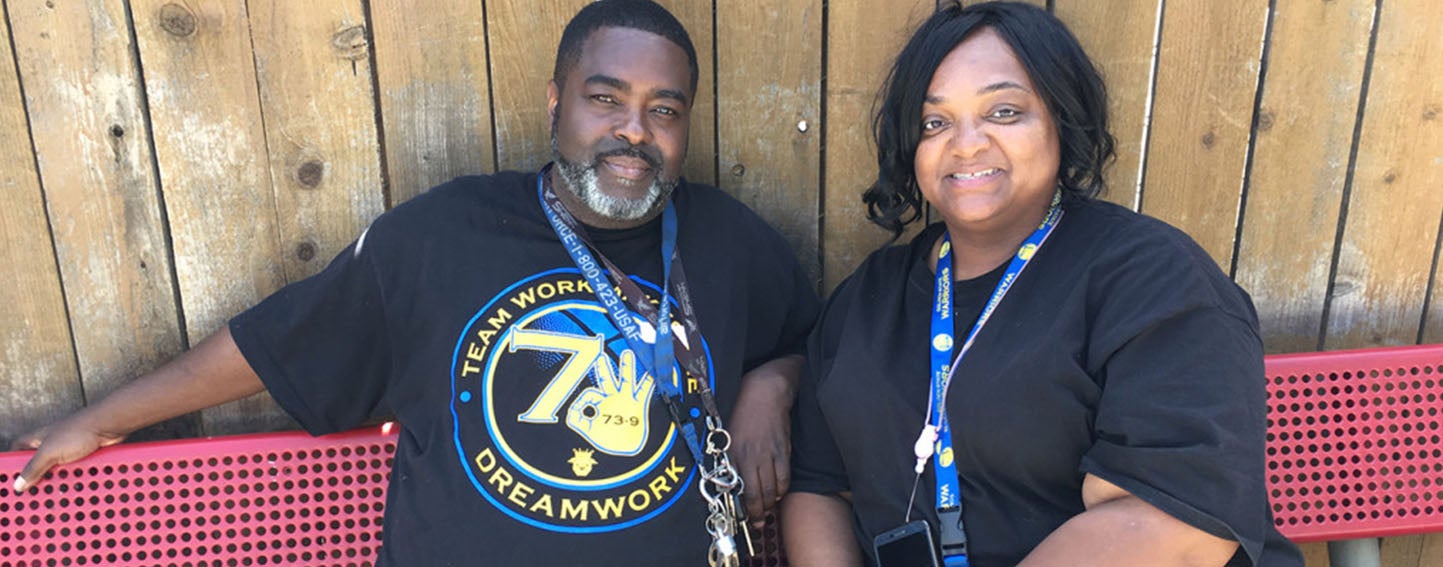

For people coping with mental health problems, peer support can be an important part of their treatment. Peer support workers have personally struggled with mental illness, addiction, or both. They help other mental health patients to fully engage in the recovery process. Across the country, innovative peer counseling programs are helping expand access to mental health services, meeting patients where they are with culturally competent care and creating more roles for health care delivery.
Charlie Jones is an Oakland, California, peer support worker. In her 20s and 30s, she was hospitalized several times for mental health issues, Rob Waters writes in California Healthline. Despite the challenges, Jones successfully completed her bachelor’s degree in human development at California State University, East Bay, and today she is the program manager for Reach Out, a peer support program run by the nonprofit Alameda County Network of Mental Health Clients.
Reach Out brings peer support to mental health and adult residential facilities. The program depends on unpaid volunteers to deliver program services. During a recent visit to Great Expectations Residential Care in Oakland, Jones introduced herself to the residents as “Charlie the Angel.” With her that day was peer volunteer Lee Frierson, who connected with the residents by telling them “I’m a peer. I suffer from depression. It helps me to help you guys.”
Research from Emory University shows that peer counseling is a beneficial component of mental health recovery. In a randomized controlled trial (PDF), researchers studied 400 participants with a serious mental illness and one or more chronic illnesses (e.g., diabetes, heart disease). Participants assigned to a six-session health education program led by certified peer specialists (licensed by the state of Georgia) saw greater improvements to their physical and mental health than participants who received usual medical and mental health care. Other researchers have found that peer support for individuals with co-occurring mental health and substance use diagnoses prevented re-hospitalizations and facilitated their ability to live in the community.
California Moves to Recognize Peer Providers
California suffers from a shortage of licensed mental health professionals. Many psychiatrists and psychologists are nearing retirement age, and in general mental health providers are poorly distributed across the state and not reflective of California’s racial and ethnic diversity. Peer providers could play a role in helping the state meet some of its mental health workforce needs. The California Future Health Workforce Commission spent 12 months developing a master plan (PDF) to strengthen California’s health workforce, and one of its priority recommendations is scaling the engagement of frontline workers like peer providers through certification, training, and reimbursement. These workers can draw on “lived experience to support better outcomes for all and to promote recovery and self-sufficiency for people with mental illness and substance use disorder,” the commission wrote in its report. (CHCF is one of five organizations that funded the commission’s work.)
In 2007, the Centers for Medicare & Medicaid Services began allowing states (PDF) to reimburse for services delivered by peer providers. Medicaid funding is available for states that have a formal peer certification process, but California does not have one. That means the state is “leaving money on the table,” Keris Myrick, chief of peer services at the Los Angeles County Department of Mental Health, told Waters.
A bill authored by Sen. Jim Beall (D-San Jose) could change that. SB 10 would create a statewide peer support specialist certification program as part of California’s Medi-Cal program. SB 10 would allow the Department of Health Care Services (DHCS) to use funds from the Mental Health Services Act to develop and administer the certification program. On July 3, the bill moved to the Senate Appropriations Committee.
Last year, former Governor Jerry Brown vetoed an identical bill, citing financial concerns. “A fiscal analysis from the prior bill found a certification program would cost DHCS approximately $2 million in the first year, with an ongoing cost of $3.8 million annually,” reports Sammy Caiola for Capital Public Radio.
While California does not yet have a formal peer certification process, peer training programs are available through organizations such as the Alameda County Network of Mental Health Clients. Frierson, the unpaid volunteer for Reach Out, told Waters he plans to enroll in the training program and hopes to be certified by the state of California.
Restaurant Industry Addresses Mental Health Needs
Beyond certified peer programs like the one being considered in California, innovative programs that enlist social support from friends and colleagues are helping catch people in mental health crises.
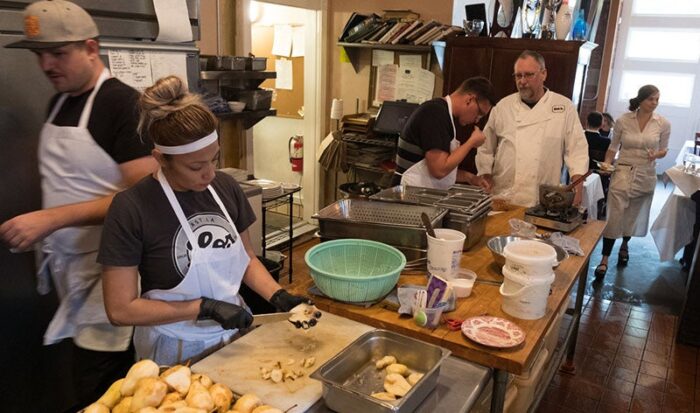
Twelve people who worked in Sacramento’s restaurant and hospitality industry died last year from suicide or drug overdoses. Local chef Patrick Mulvaney, who is known for raising awareness and money for issues like homelessness and domestic violence, felt compelled to act. Mulvaney, owner of the farm-to-table restaurant Mulvaney’s B&L, partnered with five organizations to create a peer counseling program called I Got Your Back. The program includes a mental health training curriculum developed by the participating organizations — Kaiser Permanente, VSP Global, WellSpace Health, the Steinberg Institute, and the James Beard Foundation.
Gavin Jenkins reports for the digital media outlet The Outline that “Mulvaney and a handful of staff members were trained on how to talk to someone who is anxious, depressed, or suicidal, as well as what resources to offer them.” Those in-house peer mentors wear a purple pin to signal to their colleagues that they have been taught how to look for warning signs like changes in productivity or social functioning and can provide coping strategies and resources for those in crisis.
Mental health issues are common in the restaurant and hospitality industry. A report by the nonprofit Mental Health America ranked the food and beverage industry among the lowest-scoring industries on workplace mental health. According to the US Substance Abuse and Mental Health Services Administration, about 17% of full-time workers in the accommodations and food services industry had substance use disorder in the past.
I Got Your Back pilots are expanding to 22 other Sacramento restaurants by the end of the summer. Candice Wang reports for the Sacramento Bee that data and interviews from those pilots will be collected to make improvements to the program. After that, Mulvaney hopes to roll it out across California and potentially even nationwide.
What types of innovative programs are helping your community meet its mental health care needs? Tweet at me with #EssentialCoverage or email me.
Authors & Contributors


